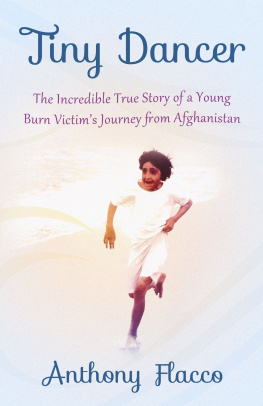Rendezvous Tahiti
by William Stephan
Copyright 2015 William Stephan
ISBN 978-1-633930-56-8
All rights reserved. No part of this publication may be reproduced, stored in a retrieval system, or transmitted in any form or by any means electronic, mechanical, photocopy, recording, or any other except for brief quotations in printed reviews, without the prior written permission of the author.
Published by

210 60th Street
Virginia Beach, VA 23451
212-574-7939
www.koehlerbooks.com

A free eBook edition is available
with the purchase of this print book.
_______________________________________
CLEARLY PRINT YOUR NAME ABOVE IN UPPER CASE
Instructions to claim your free eBook edition:
1. Download the BitLit app for Android or iOS
2. Write your name in UPPER CASE on the line
3. Use the BitLit app to submit a photo
4. Download your eBook to any device
This book is dedicated to:
ETHEL PERCY ANDRUS
1884 -1967
Founder of AARP
AARPs integrity, reliability, and dedication to excellence today reflects the commitment, compassion, and creativity of its founder, Ethel Percy Andrus. Dr. Andrus was a social innovator, educator, humanitarian, writer, and an authority on aging and the difficulties facing the older generation. She was a sought-after instructor and lecturer who used her many talents and influence to bring attention to the needs of older persons. At the time of Dr. Andruss death, membership in the American Association of Retired Persons had climbed to an astonishing two million people. Today her legacy has grown to an immense forty million members.
Under Dr. Andruss leadership, AARP initiated a massive travel program, which also has grown exponentially in the fifty-year history of the organization. This additional service has given millions the opportunity to see the world with travel arrangements managed by this exemplary organization. AARP has become the role model and innovator of the travel industry. I went to work for the AARP Travel Division in 1968, the year after Dr. Andruss death. I deeply regret never having met her, though as the following accounts will attest, I am a grateful beneficiary of her lasting achievements.
RENDEZVOUS TAHITI DISCLAIMER
This book contains the actual events of a true story. Only the names have been changed to protect privacy. Although every possible effort has been made to assure the accuracy of the chronology and sequence of events, some details may have eluded my memory of forty years ago. Notwithstanding this possibility, I am confident that 99.9 percent of the stories herein are exact, accurate accounts of my personal experiences in the order in which they took place.
CHAPTER 1
A DAY TO REMEMBER
T he first moment I saw her, I fell in love. She passed outside my window, reflecting the early morning sunlight like the sparkle off the dew. Everyone who saw her pressed together for a closer look. I clung to my unobstructed view for as long as I could; but soon, others swarmed in. Heads bobbed up and down before me, opening and closing my access to her charms like the shutter on a camera, allowing only brief snapshots of her breathtaking beauty.
Each image was a treasure I locked away in my mind. I felt a sense of urgency rush by. Until now I had merely read about her, and come to her only in my dreams, but she had beckoned me over the years, and over the miles, and at last she appeared before me.
Ladies and gentlemen, our hostess said, the captain has begun our descent. Please return to your seats and fasten your seat belts.
For a moment I was distracted. I stowed my tray and raised the back of my seat. I looked out the window again at the most beautiful sight I had ever seen: the vision of my dreams.
Tahiti.
We descended through a thin layer of wispy pink clouds as I thought about the surreal events that had put me on that flight and changed my life forever.
There it was, August 19, 1968, stamped above where Department of Defense form DD-214 spelled it all out: William Ernest Stephan is honorably discharged from service in the United States Army. I had just returned from Vietnam where Id spent the past eighteen months. I had left Saigon just as the war reached a major turning point.
It was called the Tet Offensive. It was the Viet Congs last desperate attempt to reclaim the South. Every city wed come to consider secure fell under siege. And then, one by one, they all fell.
****
I had been disappointed in my marksmanship test in basic training. I had fired guns before, and I considered myself a pretty good shot. But I couldnt score any better than Marksman, the last of three qualifying levels behind Sharpshooter and Expert. Only later did I realize that my destiny was taking hold and steering me to an unknown future. The Experts and the Sharpshooters were assigned to the jungle, while I was placed on administrative duty in Saigon. What seemed to be one of lifes insignificant turns ironically had an unforeseen consequence. I left the war unscathed. Or so I thought.
One of those less fortunate than I was a naval aviator by the name of John McCain. While flying his carrier-based A-4E Skyhawk on a bombing run over the North Vietnamese capital of Hanoi, his jet took heavy ground fire. McCain ejected and parachuted into a lake where he was taken prisoner by the North Vietnamese.
The date was October 26, 1967, ten months before I received my military discharge. Years later, when McCain was asked if he had attended Woodstock in 1969, he quipped, No. I was tied up at the time.
In Saigon, where I was assigned during Tet, the North Vietnamese flag had flown briefly over the American Embassy a few blocks from my office. It was on that very day that I met Henry Fonda, who was touring South Vietnam in support of our troops while his daughter Jane had gone to Hanoi to pose for photos atop the enemys antiaircraft guns.
Back home, life was no less contradictory. For the first time in American history, troops returning from a war were insulted, heckled, and jeered. Even those missing arms and legs faced intense mental and physical abuse. In the year and a half Id been away from home, a new culture had spread across the country, a culture of pot, LSD, free love, and civil disobedience. What a change from the last great American conflict, when soldiers returning from World War II needed only to don their uniforms for grateful employers to hire them on the spot.
Our Vietnam vets had to hide their uniforms as if theyd never taken part in the most unpopular war in American history. In the words of Bob Dylan, The times they are a-changin. Indeed, they had.
My first morning back in the States, I headed out my door wearing a coat and tie, feeling strangely uncivilian in civilian clothes, and apprehensive about finding a job. I had decided to settle in California, since I found the West Coast climate more appealing than what Id left behind in Wisconsin. I knew the job market was weak, but I was confident I could find something to fit my talents.













